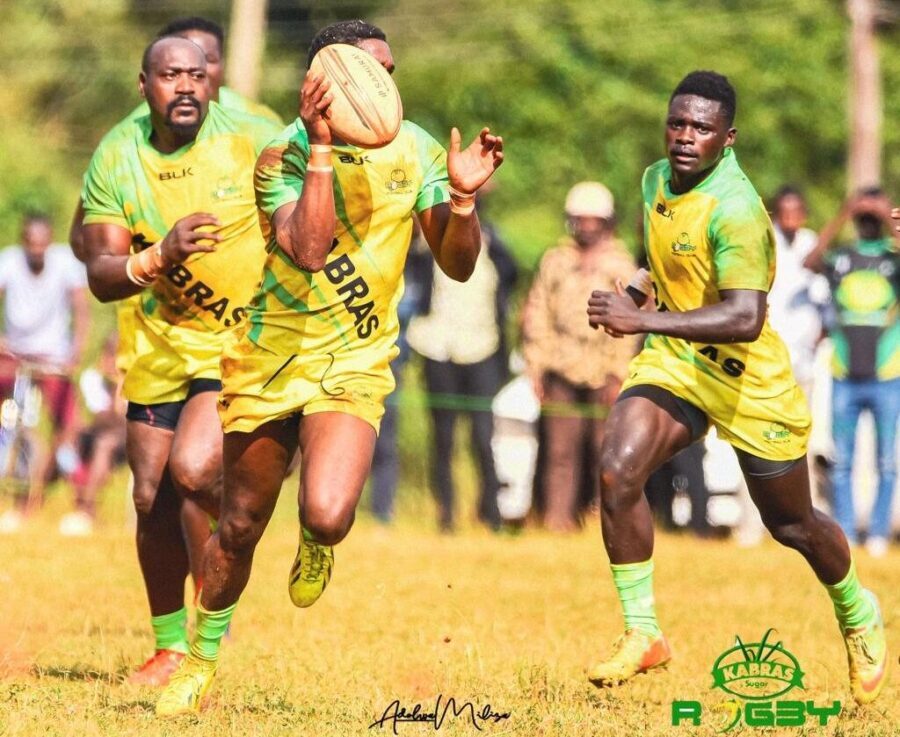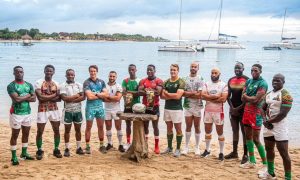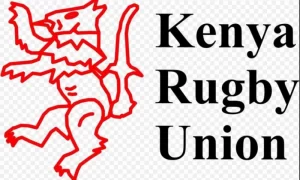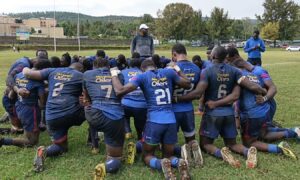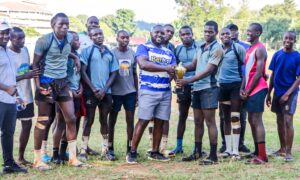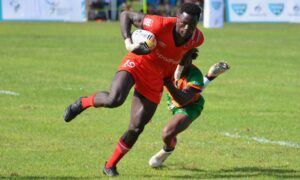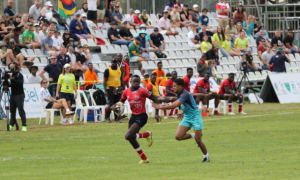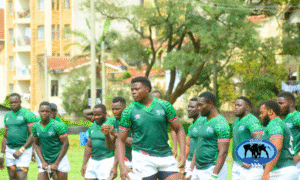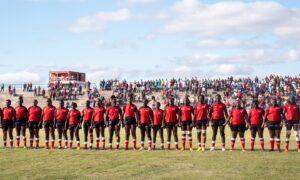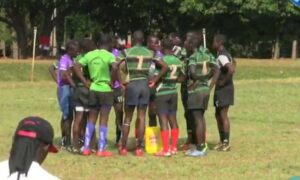A Kenya Cup title, an unbeaten season and doing a double against an old foe, KCB rugby, one being in a final, capped a sensational and historic Kabras RFC’ 2023 Kenya Cup season.
Until their 19-9 win over the weekend, the sugar men had never defeated the bankers in a Kenya Cup final coming short on five occasions. Recent history between the two sides has largely favoured the sugarmen who got their first-ever win against the bankers in a 19-6 win back in 2019, a win that the then coach Henly Du Plessis described as “getting the monkey off our back”.
Fast forward to the 2023 season, Kabras parted ways with Jerome Muller, who had led them to their second Kenya Cup title against Menengai Oilers in a final that they won 34-28, and in came his South African counterpart Carlos Katywa, who was doubling as his assistant as well as being the forwards coach to take the mantle.
Katywa who in a presser to the build-up game to the final failed to accept they are still underdogs against KCB, stemming his decision on their 29-23 Ruaraka win, said they are no longer a mediocre team.
His tactics across the season as was in the final, proved the difference and won Kabras their third Kenya Cup title.
We take a look at some of the tactics and decisions that proved key in their title defence:
1. Kubu and Nyambua Sabbatical
Jone Kubu played a pivotal role in Kabras’ Kenya Cup win in 2022, where he was named the Most Valuable Player. However, due to playing over 1500 minutes for club and country, an internal fitness assessment at the club resulted in him being granted a two-month sabbatical to recover from a wrist injury he sustained while on national duty as well reset. This decision was made with the aim of having him fully fit for the end of the regular season when they would face tough opponents like KCB and Menengai Oilers before the semi-final and final games.
Kubu missed the opening five games of the season, but his return to the side was timed perfectly. He put on a stellar show against KCB, scoring two tries and a conversion, and impressing with his 50-22 metre rule kicking. His Man Of The Match performance saw Kabras win 29-23 and climb to the top of the log, giving them the advantage to host the final.
Although his performances in the semi-final against Quins and the finals were not as outstanding as his heroics against KCB, Kubu’s rest at the beginning of the season was crucial in Kabras’ Kenya Cup title-winning run.
The team captain, George Nyambua, also received some time off after playing consistently for club and country throughout 2022. He returned from the Repechage with some knocks and was given a four-match rest before resuming in January. His return marked a significant improvement in the team’s performances leading up to the final.
2. Blending youngsters and experience
At the start of the season, coach Katywa expressed his confidence in his experienced players but also emphasized the importance of younger players stepping up to help the team win the title. During the January transfer window, Kabras brought in Lameck Ambetsa from MMUST, who started every game for the team, including the final.
One of the young players who Coach Katywa has given a chance to prove themselves is 22-year-old David Bunduki. Despite facing experienced opponents such as Davis Chenge and Andrew Amonde from KCB in their regular season meeting, Bunduki showed great composure and discipline, helping his team secure crucial points in their enemy’s territory. Bunduki’s performances have earned him several Man of the Match awards and cemented his position as a key player for Kabras.
Other young players who have made significant contributions include Jeanson Misoga, who scored five tries in their dominant win over Nakuru, as well as John Baraka, Valerian Tendwa, Dan Angwech, and Bryceson Adaka, who has since earned a spot on the Kenyan National team. All of these players have proven that age is just a number, and with the guidance of experienced players and coaches, they can make significant contributions to the team’s success.
3. Mental Health coach
Kabras added mental health coach, whose job was to ensure the mental well-being of the players in and out of the field. Describing how important the mental health coach has been in a past interview, Kabras captain George Nyambua said the boys were able to stay more focused in the game which in turn reeked results for them. “It has helped as there is a time in a game when we lose concentration and start focusing on blaming each other. Having a mental coach has helped us to come into the game after losing concentration faster and especially when are in the red zone, where things are not going out our way,” he had said.
Their finals display against KCB, especially their organization and concentration in defending, a tactic that arguably won them the game, was not a technical organization alone, there were some mental aspects to it.
Kabras exhibited sharp concentration even when they were pinned dip inside their yard and in all instances, they prevailed.
4. Improving defence
Throughout the season, Kabras only allowed seven tries to be scored against them, making them the club with the lowest number of conceded tries in the recent past.
Across the 13 matches played, the club’s total number of points conceded was just 94. The Sugarmen also managed to keep four clean sheets and impressively did not allow a single try to be scored against them in eight of their matches, including the final.
It was evident that defence won them this title and it was the second time in history that they avoided conceding a try against KCB.
5. Tapping more former players to their technical bench
Kabras’ success can also be attributed to their strategic decision to involve more former players in their technical team. These individuals not only have a deep connection with current players, but they also have a thorough understanding of the club’s culture and needs of the club. Max Adaka and Felix Ayange, who are both World Rugby-certified coaches, have played crucial roles in the team’s achievements.
Adaka serves as the forwards coach and heads the Eric Shirley Shield program, while Ayange is responsible for honing the team’s skills. Geoffrey Messo serves as the Team Manager.
Another former player, Edwin Achayo, is also a vital member of Kabras’ technical bench. With over two decades of experience in both playing and coaching rugby, Achayo possesses all the qualities of an accomplished international player. His coaching has contributed significantly to the outstanding performances of scrum halves Dan Angwech, Barry Robinson, and Kenyan international Brian Tanga.
Nick Barasa is also an executive committee member and he is like the link between players and the club’s management. Kabras also established a competent executive committee in previous year, which has transformed the club into a well-organized and high-performing team.


